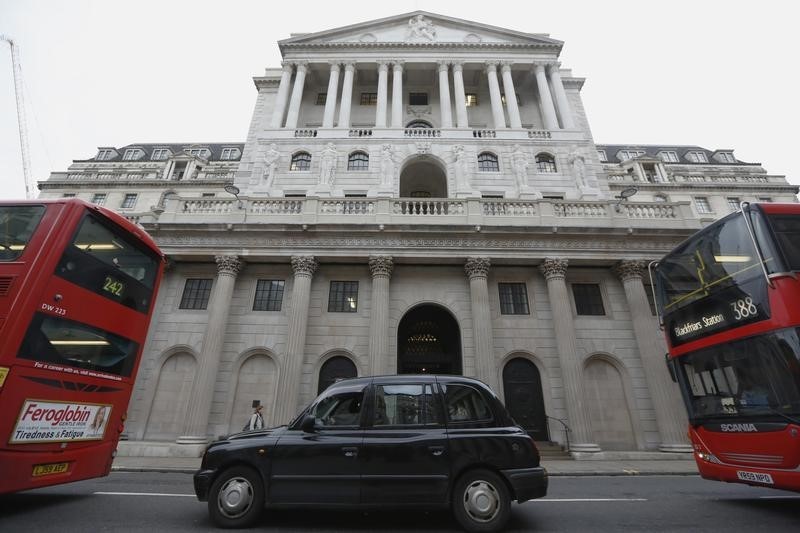
© Reuters.
GBP/USD
-0.09%
Add to/Remove from Watchlist
Add to Watchlist
Add Position
Position added successfully to:
Please name your holdings portfolio
Type:
BUY
SELL
Date:
Amount:
Price
Point Value:
Leverage:
1:1
1:10
1:25
1:50
1:100
1:200
1:400
1:500
1:1000
Commission:
Create New Watchlist
Create
Create a new holdings portfolio
Add
Create
+ Add another position
Close
By Geoffrey Smith
Investing.com — The Bank of England raised its key interest by 50 basis points to a new 14-year high of 3.50%, its latest shot at trying to tame rampant inflation without pushing the U.K. economy into a deep recession.
The step is smaller than the 75 basis point hike announced at the Bank’s last meeting and reflects the fact that quarterly GDP growth has been negative for three months already but also reflects the fact that both inflation and wage growth remain uncomfortably high.
“The labor market remains tight and there has been evidence of inflationary pressures in domestic prices and wages that could indicate greater persistence and thus justifies a further forceful monetary policy response,” the Bank said in a statement detailing its decisions.
Headline inflation fell by more than expected in November but at 10.7% remained far above the Bank’s 2% target. Average earnings, meanwhile, are rising at their fastest rate since records began, except for a brief period during the pandemic.
Most of the MPC expects to have to raise rates further yet, the Bank said.
“Should the economy evolve broadly in line with the November Monetary Policy Report projections, further increases in Bank Rate might be required for a sustainable return of inflation to target,” it noted.
The Bank said its nine-strong Monetary Policy Committee was split three ways, with six members voting for the 50 basis point hike, one (Catherine Mann) voting for a hike of 75 basis points, and two (Silvana Tenreyro and Swati Dhingra) voting to keep the Bank rate unchanged at 3.0%.
The Bank’s action follows a similar move by the Federal Reserve on Wednesday in trimming the size of its interest rate increases to 50 basis points from 75, amid increasing signs of an economic slowdown in the U.S. Fed chair Jerome Powell had reiterated, however, that the Fed still has “a ways to go” in raising rates, whereas most economists expect the BoE to halt its rate increases by summer next year.
A number of factors have made the Bank’s job a little easier since its last meeting, In particular, the pound has risen by nearly 3% on foreign exchange markets, relieving some of the pressure on inflation from import prices, especially energy. The pound’s recovery was supported by a more balanced budget proposal for next year, which abandoned earlier plans for huge and unfunded tax cuts.
The Bank said it expects the budget to support GDP in the near term, but weigh on it over a three-year horizon, leaving it 0.5 percentage points below the Bank’s central forecast prior to the budget statement.
At the same time, it said it expects the government’s efforts to cap household and business energy bills to take 0.75% off the inflation rate by the second quarter of next year, reinforcing a downward trend in headline inflation as last year’s rises in energy prices pass out of the annual calculations.
Source: Investing.com






























